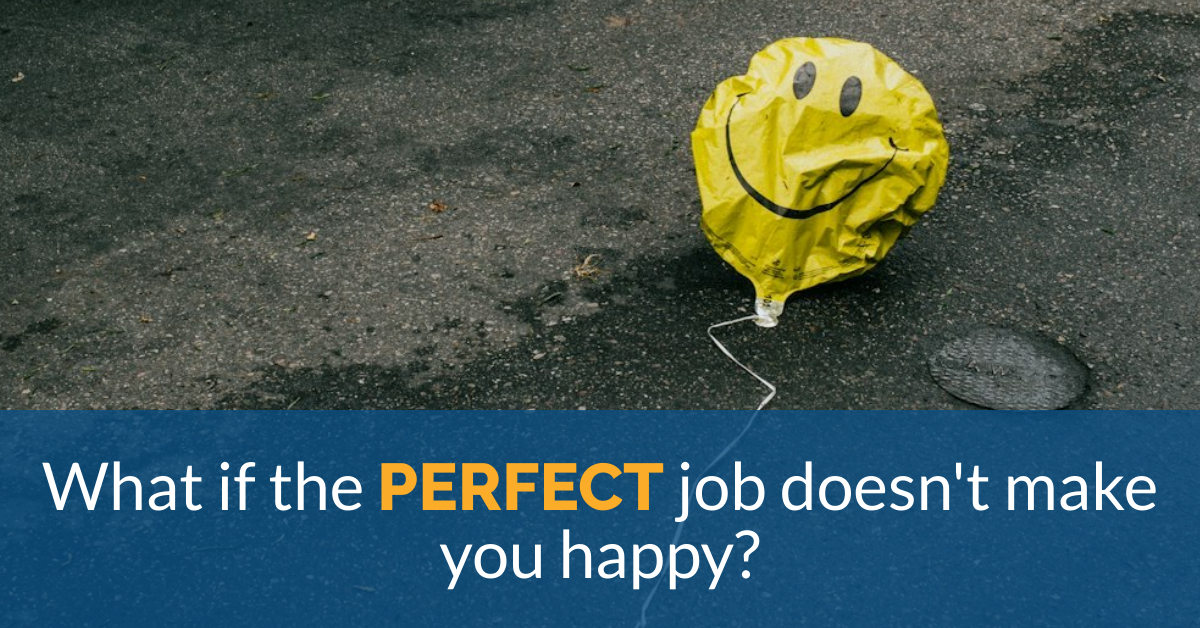
What If the Perfect Job Doesn’t Make You Happy?
What if happiness wasn’t something you found in a dream job, a promotion, or the perfect balance between work and life? What if, instead, it was something you made, right where you are?
That’s the bold idea behind Dan Gilbert’s TED Talk The Surprising Science of Happiness. It’s a fascinating dive into why we’re often wrong about what will make us happy, and why our brains are surprisingly good at helping us adapt, even in situations we didn’t choose.
This isn’t about pretending things are fine when they’re not. It’s about understanding how our minds work, and how that insight applies to the human side of work, leadership, and emotional intelligence.
Our Built-In Simulator (and How It Trips Us Up)
Gilbert explains that our brains have developed something remarkable: a prefrontal cortex, which acts as an “experience simulator.” It lets us mentally test-drive future scenarios without ever leaving our seat. Think of it as your internal preview reel, trying out how you’d feel if you won the lotto, lost a job, or moved to the coast.
There’s only one problem. The simulator is a bit dodgy.
Apparently, we overestimate how much impact major life events will have on our happiness; for better or worse. Gilbert calls this the ‘impact bias’. Whether it’s scoring a dream role or missing out on one, the emotional high (or low) tends to fade much faster than we predict.
That has big implications for how we lead, work, and relate to others.
Why This Matters for the Human Side of Work
We often assume that if people just got the right job, the better boss, or the bigger pay cheque, they’d be happier. But Gilbert’s research suggests that it’s not so much the external outcome that shapes our long-term satisfaction, it’s our ability to adapt to it.
This is key to understanding the human side of work.
A manager who understands this won’t just chase perks or titles to “motivate” their team. Instead, they’ll pay attention to the emotional experience people are having right now. They’ll create an environment that values group dynamics, acceptance, and psychological flexibility, the stuff that actually supports wellbeing at work and a healthy workplace culture.
That’s where emotional intelligence comes in.
Emotional Intelligence = Knowing What Really Affects Us
Emotional intelligence isn’t just about staying calm in meetings or being good at reading people. It’s also about understanding how our own minds work, including the way we react to disappointment, pressure, and change.
Gilbert gives the example of people who lost everything, from political careers to decades in prison, yet described themselves as happier than ever. Why? Because humans have what he calls a psychological immune system. It kicks in when we’re stuck with an outcome we didn’t choose, helping us reinterpret the situation in a more positive light.
But here’s the really interesting twist: that system works best when the outcome is irreversible.
In one of his experiments, people who had no chance to change their minds about a choice (say, which photo to keep) ended up liking their decision more. Those who could change their minds were less satisfied, constantly second-guessing themselves.
It’s a fascinating, if slightly uncomfortable, insight. The freedom to choose can make us less happy. And being stuck can sometimes make us more content.
So What Can Leaders Learn From This?
If you work with people, in any capacity, this talk is a goldmine. It reminds us that:
- People are incredibly resilient, even when things go “wrong.”
- Creating a culture of trust, meaning, and flexibility supports the real drivers of workplace satisfaction.
- Leaders should be cautious about dangling shiny carrots (more money, fancier titles) as the only path to happiness. It’s the experience of work, how people feel day to day, that matters more.
In short, understanding the emotional landscape of your team is just as important as any strategic plan. It’s the human side of work that is at the core of what makes work meaningful and people motivated.
Happiness Is (Still) an Inside Job
Dan Gilbert’s message isn’t that external success doesn’t matter. It’s that we’re often chasing the wrong thing or at least overestimating how much it will do for us.
Real, lasting happiness, even at work, doesn’t come from finally ticking all the boxes. It comes from learning how to manage our expectations, engage meaningfully with the present, and cultivate the kind of mindset that doesn’t fall apart at the first sign of change. This is both emotional intelligence emotional resilience in action.
And it’s probably what your team needs more than another motivational quote in the staff kitchen.
Check out our upcoming free MASTERCLASSES that focus on how to Feel Good at Work, how to work Better Together, Talk Smart (communication techniques), Mission Control (leadership techniques), Essential Human Skills, and how to Tame Your Time.
If you want to improve your behavioural skills and master the human side of work, book your free strategy session here.
Listen to Podcast Here:
About the Author



